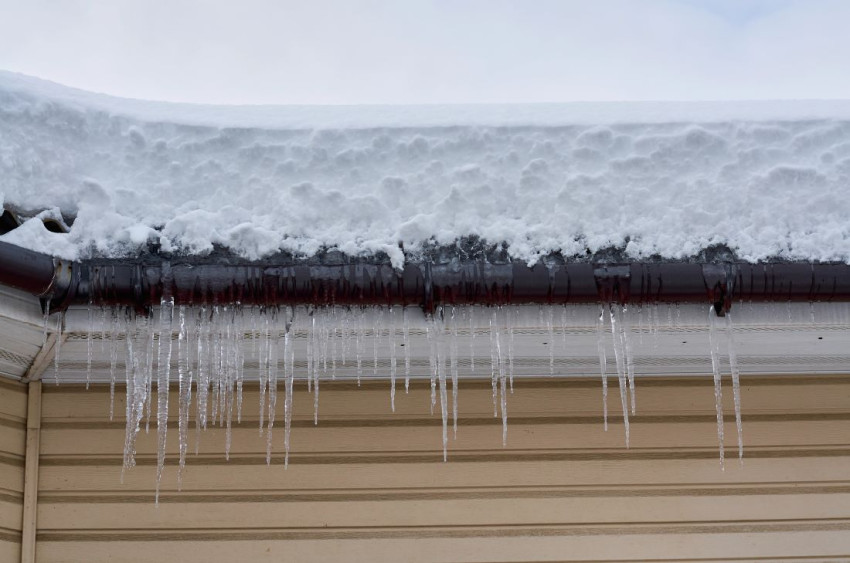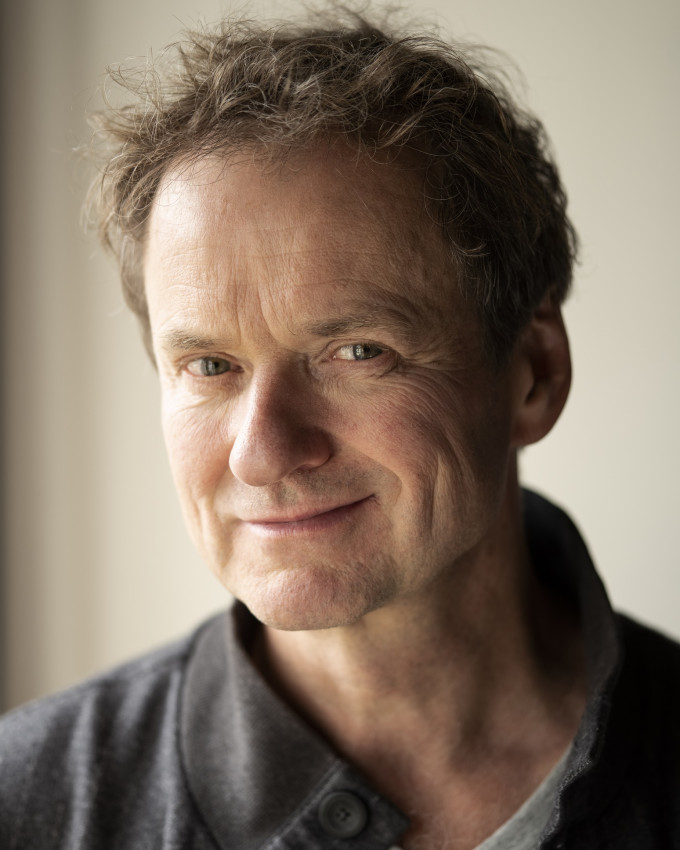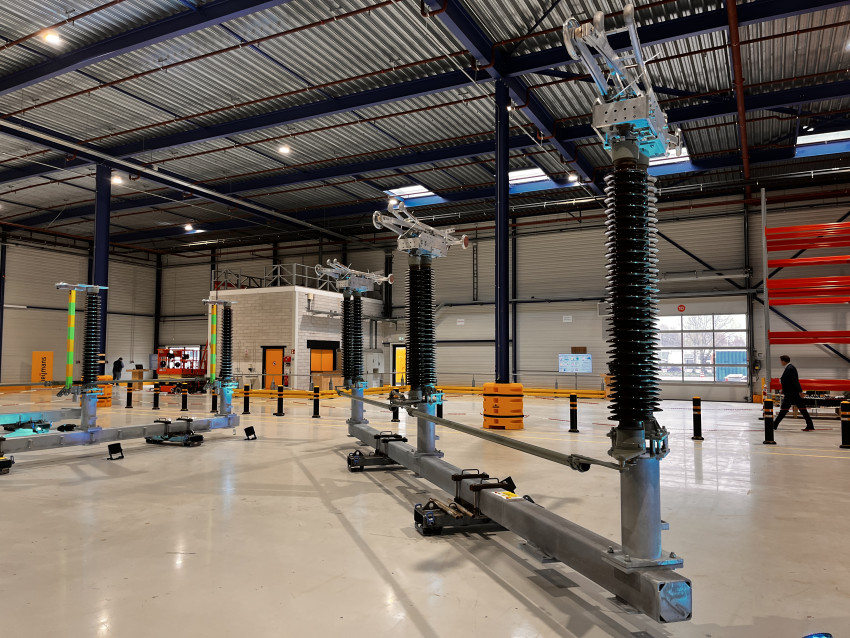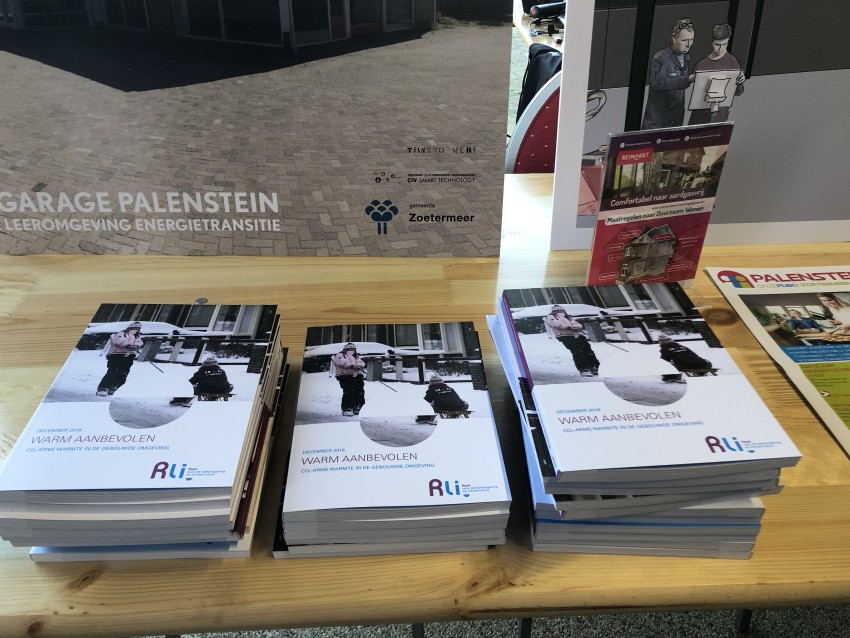
'Clarity required from government on transition'
Societal support for the required energy transition is being jeopardised due to a lack of clarity. The essential extra support will only be achieved once the government provides clarity on who is responsible for the transition, who will foot the bills, and whether the general public will have a choice in how to heat their homes. That is the conclusion of the Council for the Environment and Infrastructure (Rli) in their advisory report 'Warmly recommended', presented to Minister Kajsa Ollongren of the Ministry of the Interior last Thursday.
By 2050, all buildings in the Netherlands must be completely sustainably heated. According to the Rli, this is only possible if a vision is made available next year, on how the transition will take place and why it is essential. It will then be the responsibility of the government – and particularly the municipal authorities – to install a new heating infrastructure. It should be ready by 2040, and the necessary finance will need to be made available by the government, according to the government advisory council.
LIMITED CHOICE
Whereas the national government, provincial and municipal authorities will be responsible for creating a heating network, home owners will themselves be responsible for the necessary adaptations in the home. The government will need to clearly communicate that there will be a limited choice for home owners and building owners. A heating network will be installed in most neighbourhoods, to provide sustainable heat. In some homes, the Rli suggests that installation of a heat pump will be a more efficient choice.
Consumers will no longer have the option of choosing between the various energy companies as their heating supplier. While management of the heating networks need not necessarily be a government task, measures must be taken to prevent such systems falling into foreign ownership.
According to council member prof. mr. Niels Koeman, leader of the advisory commission, technologically speaking, the urban environment can be much more easily rendered sustainable, than the industrial sector, for example. However, the enormous scale is a complicating factor. 'We need to knock on seven million doors, and not to forget the numerous offices, schools, hospitals and so on. That makes it complicated.'
FINANCING
Another complicating factor is the financing. Few private home owners would welcome the idea of having to spend 20,000 euros on double or triple glazing, wall insulation or a heat pump. Koeman suggests that better financing options must be provided in order to encourage residents and building owners to take the necessary action. Loans should no longer be attached to the owner but rather to the home itself, and be spread out over many years. Repayments can then be financed from the money saved thanks to lower gas bills. A system of guaranteed national energy loans also needs to be introduced, analogous to the national mortgage guarantee system. This will keep interest rates low.
COMPULSORY INSULATION
According to the council, it is imperative that the message given by the government is coherent and clear. The Rli estimates that in the first ten years the focus will still be on insulation. ‘If all home owners insulate their homes well, the heating requirement will already decline so sharply that we can easily meet the CO2 targets for 2030 (a reduction of 49%),’ says Koeman. For the time being, insulation efforts will simply be encouraged, though Koeman can imagine a situation in which insulation becomes compulsory for home owners in the future. 'It is worth considering linking this to the permits required for renovation purposes. When a home owner applies for a building permit, it could be granted on condition that the home is also well insulated,' suggests Koeman. 'Or homes may only be sold once they are properly insulated.'
The municipal authorities will also need to seek links to other current issues in each neighbourhood, such as concerns regarding safety or flooding, for example. 'Alignment with the dynamics of the neighbourhood can increase support for the energy transition and must therefore be a compulsory component of the municipal heating plans,' according to the council. Such heating plans per neighbourhood should be in place by 2021. Residents will then also know whether a heating network will be installed in their neighbourhood or whether they will switch to fully electric heating, for example.
QUALITY IMPROVEMENT
Ir. Jan Jaap de Graeff, Chairman of the Rli, made a comparison with fifty years ago, the period in which all of the Netherlands suddenly became connected to the gas network. 'That was part of moving forward, and was indeed experienced as such. You no longer needed to cart coal around.' A similar story applies today, he says. 'The collective heating systems to which we refer, and effective insulation, will make homes warmer and more comfortable, especially if this is combined with general renovation of the neighbourhood. That is the perspective in which we must place the transition. It's all about quality improvement. Making our country more attractive.'
Koeman has another comparison. 'Anyone who has ever smoked will recognise that as soon as you stop, you're glad to be rid of it. The same applies here. The Netherlands needs to stop smoking. Once upon a time, we were delighted to see smoking chimneys. It was a sign of economic prosperity. I'm now longing for a future in which we no longer see that.'
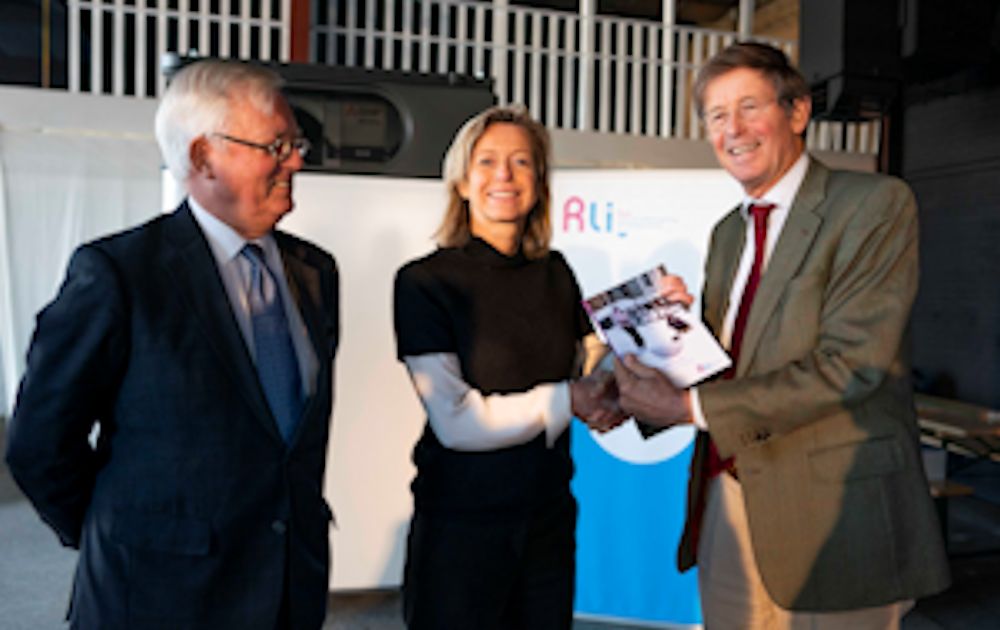
Presentation of the advisory report took place in the Zoetermeer neighbourhood of Palenstein, where the municipal authorities and De Goede Woning Housing corporation are already working hard at sustainability. Minister Ollongren pledged to study the advisory report carefully. 'If we want to rid the Netherlands of fossil fuels once and for all, we need to start now,' she said. She was immediately enthusiastic about the idea of attaching sustainability to renovation projects already planned. 'The government is already doing this: any renovation of government buildings is seen as an opportunity to render them more sustainable.'
The Rli is a government advisory body in the field of living environment and infrastructure. It comprises 10 councillors from various backgrounds, and three junior members. The government is obliged to provide a reaction, but need not necessarily adopt the recommendations to the letter.
If you found this article interesting, subscribe for free to our weekly newsletter!



